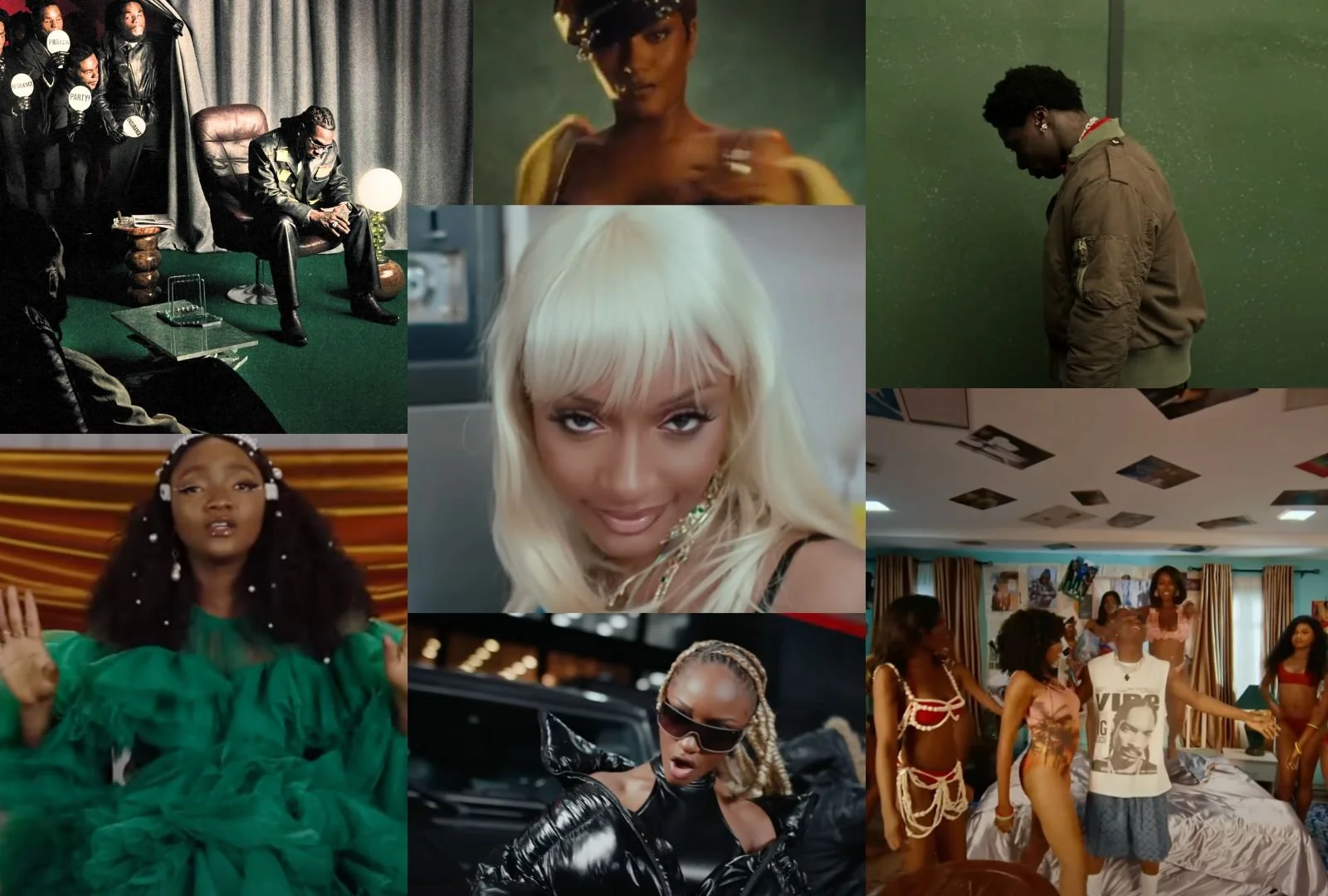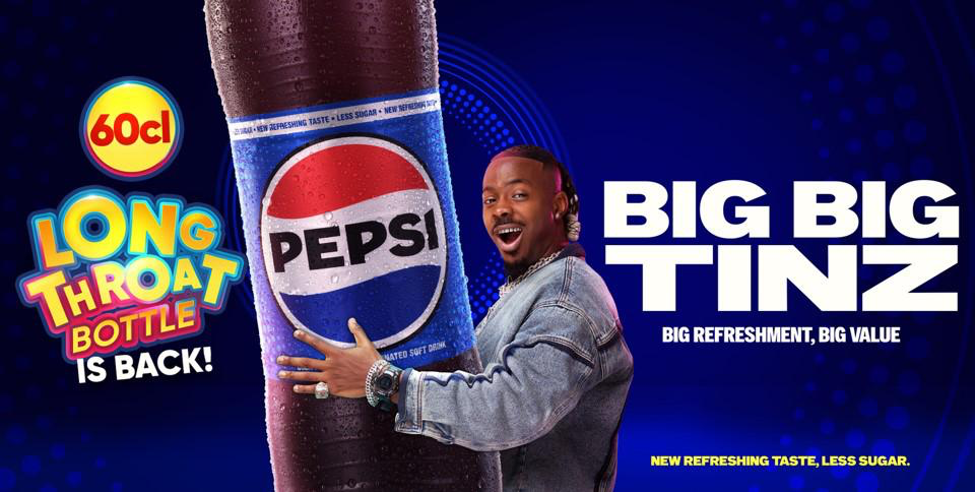Afrobeats Is Not The Future—It’s The Now: How a West African Sound Took Over The World
Afrobeats has transformed from a regional West African sound into a global juggernaut—on streaming services, dance floors, festival stages, and cultural charts across the world. It’s more than a genre; it’s a transcultural movement powered by viral dance challenges, international collaborations, major label investments, and a new generation of artists unapologetically shaping their narrative. And in 2025, it’s not just influencing pop culture—it’s defining it.
Let’s be real: Afrobeats didn’t politely knock at the door of global music—it kicked it open in Balenciagas and left a trail of glitter and goosebumps. One minute you’re casually vibing, the next you’re deep in a waistline duel with a stranger at an East London, Africa block party. From Lagos to Lisbon, Brooklyn to Barbados, this genre isn’t asking for room on the world stage—it’s redesigning the whole set.
A Surge Measured in Streams and Dollars
The numbers speak volumes. Spotify reported that Afrobeats listening outside Africa increased by 550% between 2017 and 2022. In 2022 alone, the genre racked up more than 13 billion streams globally, with cities like London, Paris, and Nairobi ranking among the top streaming hubs (Vanguard, Rest of World). More recently, Spotify revealed that payouts to Nigerian artists rose from ₦25 billion (about $16.2 million USD) in 2023 to ₦58 billion (about $37.8 million USD) in 2024—an astonishing 132% increase (Music Ally). According to Spotify’s 2024 Loud & Clear report, Nigerian music exports have grown by 49% over three years (Business Day Nigeria).
But numbers only scratch the surface. This isn’t just about streaming stats—it’s about sonic memory. About the way an Afrobeats track makes your shoulders roll like your ancestors are watching, and your heart swell like the beat dropped from your grandmother’s drum. Behind those billions of streams is a worldwide tribe moving in rhythm, not just to a sound—but to a shared story.
Artists Speak: Authenticity and Evolution
Afrobeats isn’t just thriving—it’s expanding creatively. Artists like Burna Boy have taken the genre to new heights, both musically and ideologically. Burna Boy has been vocal about wanting African music to maintain its authenticity. “You don’t need to mimic American artists! The world needs the amazing richness and beauty of our traditional African music,” he told TIME Magazine in 2024 (Time).
However, Burna Boy also pushes for evolution within the genre, famously coining the term "Afrofusion" to avoid being boxed in. “I didn’t want to be boxed in… that’s why I created Afrofusion,” he said in an interview with AP News (AP News).
But Burna hasn’t shied away from criticism either. Regarding the UK's Afrobeats charts, he challenged their legitimacy, saying, “My only thing is, whoever is doing the Afrobeats chart in the UK should not even be in the UK… this is their culture” (Gramatune). These layered opinions reflect a genre still defining itself while expanding across the globe.
You can’t talk Afrobeats without talking audacity. These artists aren’t just performers—they’re prophets in Prada. They’ve taken ancestral rhythm and tech-age swag, turned it into a global export, and still refuse to dilute their dialect. What other genre lets you learn Yoruba while wineing your waist and contemplating colonialism? Exactly.
Our music column is powered by NEWM, an official sponsor of ARCHIV3.
NEWM is redefining what it means to be an independent artist — with decentralized tools that give you full ownership, creative freedom, and new ways to earn from your music without giving up agency. Join NEWM — the Web3 platform giving power (and profits) back to artists. Discover →
Breakthrough Moments and Milestones
The genre has hit several new milestones. In 2024, the Grammy Awards introduced a new category—Best African Music Performance—and Burna Boy took home the award in 2025 (Vanguard). Burna also made headlines with his single “Higher,” which became the most-streamed debut by an African solo artist on Spotify, with 1.3 million plays in a single day (Wikipedia).
Festivals like Afro Nation have brought the genre to live audiences worldwide. Afro Nation Portugal welcomed over 40,000 attendees from 140 countries in 2023 and is returning in 2025 with a powerhouse lineup including Tems, Davido, and Burna Boy himself (Wikipedia).
Meanwhile, songs like Rema’s “Calm Down” (featuring Selena Gomez) joined Spotify’s prestigious Billion-Club, while Tyla’s “Water” topped the U.S. Afrobeats Billboard chart in 2024.
Cultural Wave: Beyond the Music
Afrobeats isn’t just a sound—it’s a full-spectrum cultural wave. The fashion, dance, language, and energy of the genre have taken over social platforms. TikTok trends like Ayra Starr’s “Rush” dance challenge have made the genre central to youth culture globally. Music videos are fusing street fashion with traditional aesthetics, and top brands like Nike and Pepsi are tapping into Afrobeats' energy for global campaigns (Club Diaspora).
And lately, the sound has been spicing up the stew even more. Afrobeats and Caribbean dancehall have been in a full-blown situationship—and it’s delicious. Think of it as the diaspora on shuffle. Songs like Shake It The Max a song originally by MOLIY, a female Ghanaian artist on the rise— but featuring a blazing fusion with Jamaican artists like Skillibeng, Shenseea, and Sean Paul. These aren’t just party anthems, they’re cultural exchanges. West Africa’s bounce meets the Caribbean’s whine, and suddenly, you’re at a dancehall in Kingston with jollof in one hand and rum punch in the other. It’s not appropriation—it’s collaboration. A rhythm-synced celebration of shared roots and radiant differences. The bridge between dancehall and Afrobeats doesn’t dilute either side; it amplifies both.
And let’s talk about the drip. Afrobeats artists aren’t just sonically bold—they’re serving high-concept, melanin-rich fashion statements that tell stories of tradition and luxury. One moment it's a gele and Ankara moment, the next it's designer frames and fur-lined crocs. It’s not costume—it’s culture. And your favorite Western pop stars? They’ve been watching and borrowing. Afrobeats didn’t just join the party—it brought the outfit everyone wants to copy.
Afrobeats is also reshaping film and television. From Netflix’s Nollywood investments to Afrobeats-inspired film scores—like the Black Panther soundtrack—the genre has carved out space in cinema. For many in the African diaspora, Afrobeats is also a medium of reconnection—a sonic bridge between identity, homeland, and modern expression.
What’s Next: Innovation, Investment, and Influence
The genre is expected to expand further through cross-genre innovation. Afrofusion, Afro-house, Amapiano, and new hybrid forms are emerging, connecting artists from across Africa, the diaspora, and beyond. Labels like Universal and Sony continue to pour money into African talent pipelines, ensuring that the momentum won’t slow any time soon.
And while the big labels are writing checks, the artists are writing history. The beauty of what’s next isn’t just the money—it’s the movement. Afrobeats is out here collecting stamps on its passport and collaborators in its DMs. We’re talking drill in Accra, soca in Lagos, dembow in Abidjan. A melting pot? Please. This is a sound clash-turned-family reunion—and the vibes are only getting louder.
As artists take control of their storytelling and cultural context, we’re also seeing a shift in how success is measured—less about Western co-signs, more about building community and global identity.
Final Note: The Sound of Now
Afrobeats isn’t waiting in the wings—it’s already center stage, mic in hand, and the world can’t look away. It’s not a passing wave or borrowed trend—it’s a cultural reset. A sonic passport stamped with diasporic pride, ancestral rhythm, and future-facing swagger. From the syncopated drums of West Africa to Caribbean-infused collaborations and viral dance crazes from TikTok to Tokyo, Afrobeats has turned up the global volume—and we’re all moving to its frequency.
So no, Afrobeats isn’t becoming global. It already is. It isn’t following the pop playbook—it’s remixing the whole thing, beat by beat, continent by continent. And if you’re still asking when it’ll take over? Catch up. The takeover already happened. The beat dropped, and the world is dancing in its wake.
This isn’t the future of music. This is the moment. And it sounds like Afrobeats.
Our music column is powered by NEWM, an official sponsor of ARCHIV3.
Authors Note:
This article was written using data and insights from sources including Spotify’s Fan Study, Time Magazine, AP News, Rest of World, Music Ally, Club Diaspora, Gramatune, Business Day Nigeria, Vanguard Nigeria, and Wikipedia entries on Afro Nation and Burna Boy. All cited links are included throughout the article.
— Jaylene Noel



